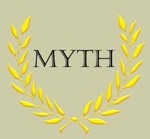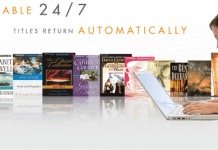
A good article in Inside Higher Ed:
Ten years ago, Abigail Sellen and Richard Harper published a nifty book about how and why people use paper in their workplaces. The Myth of the Paperless Office reported ethnographic observations of people struggling to do things with computers that they were used to doing on paper; sometimes there were good reasons why paper was so persistent. The title reminded us that the “paperless office” we were promised decades ago is a joke – on us. We use more paper than ever and manage to have disorderly desktops both literally and digitally. That’s a funny kind of progress.
Now we have the bookless library. What is it about the concept of a library without books that is so sensational? Is it because it’s so bold? So heretical? So man-bites-dog exotic?
The Cushing Academy got a lot of ink in 2009 when the Boston Globe quoted its headmaster as saying “when I look at books, I see an outdated technology.” He planned to replace them with Kindles. (This much-discussed article is now behind the Globe’s new paywall; if you’re curious, you can buy access to it for a little under five bucks.)
Here are some more recent examples:
Time magazine: Is a Bookless Library Still a Library? (on Drexel University’s new Learning Terrace)
Gainsville Sun: Library Without Books is on UF ‘Wish List’ (on planned renovation of historic Newell Hall)
IHE: A Truly Bookless Library (UT San Antonio’s Applied Engineering and Technology Library)


































I don’t use more paper than ever. These days, about the only paper I ever handle is to wipe my face or my butt.
It’s not an exotic thing. It’s an efficiency thing and a habit thing. I’m not sure why everyone is so afraid of a paperless business world. It works fine.
Although it may sound so innovative to hear something like a bookless library, it may actually not please everyone. True, electronic devices are more efficient and widespread these days. But, for some people, holding and scanning through a physical book entices them to learn more. besides, a library would look great to see some electronic resources combined with the good old books.
There will always be some who do not like the idea of progress, even when it is accepted that it is, indeed, progress (as you do yourself, Judith, in your comment that ebooks are more efficient). That doesn’t mean progress should not be undertaken; it simply means that extra effort must be made for some people to help them through progress as comfortably as possible.